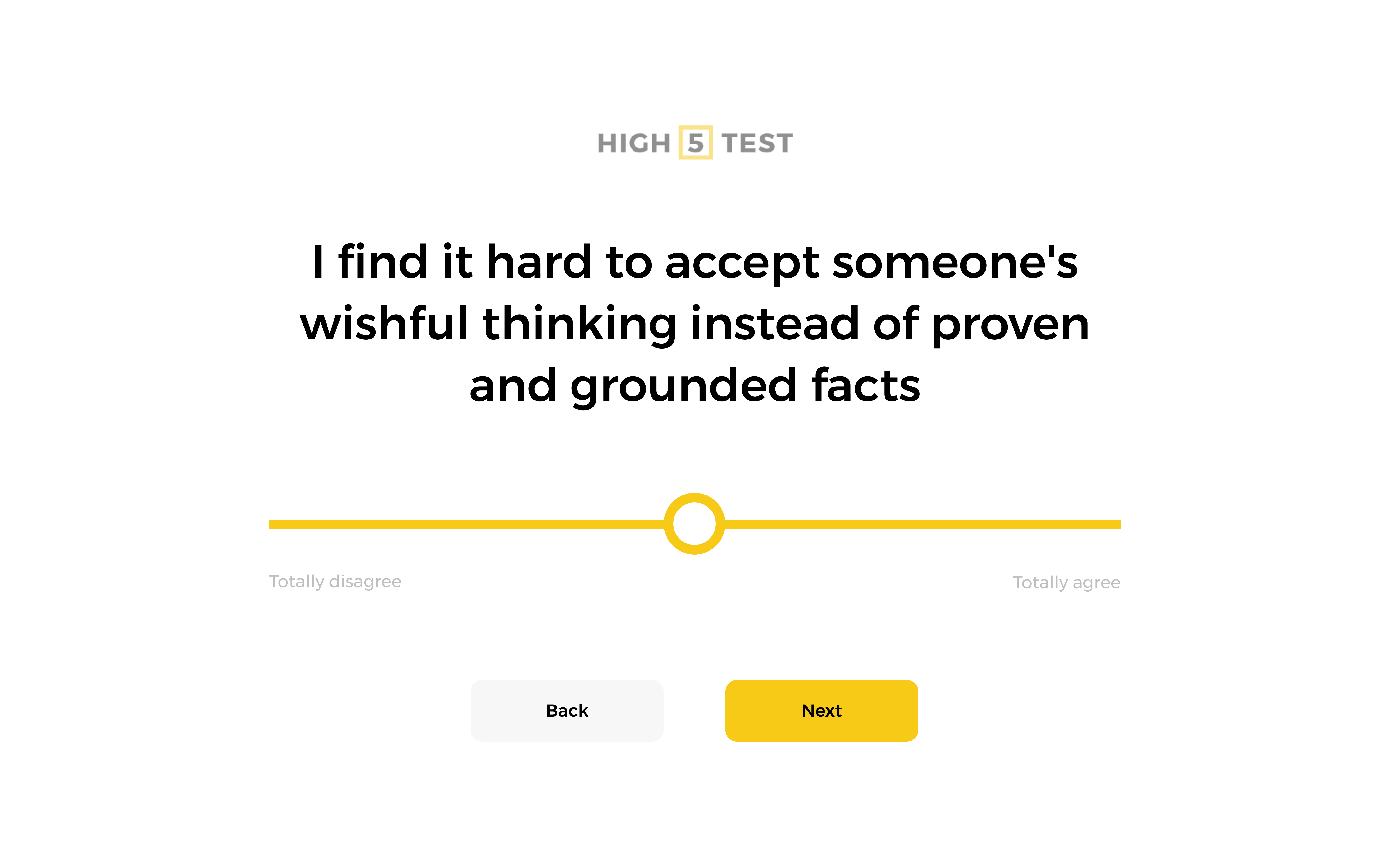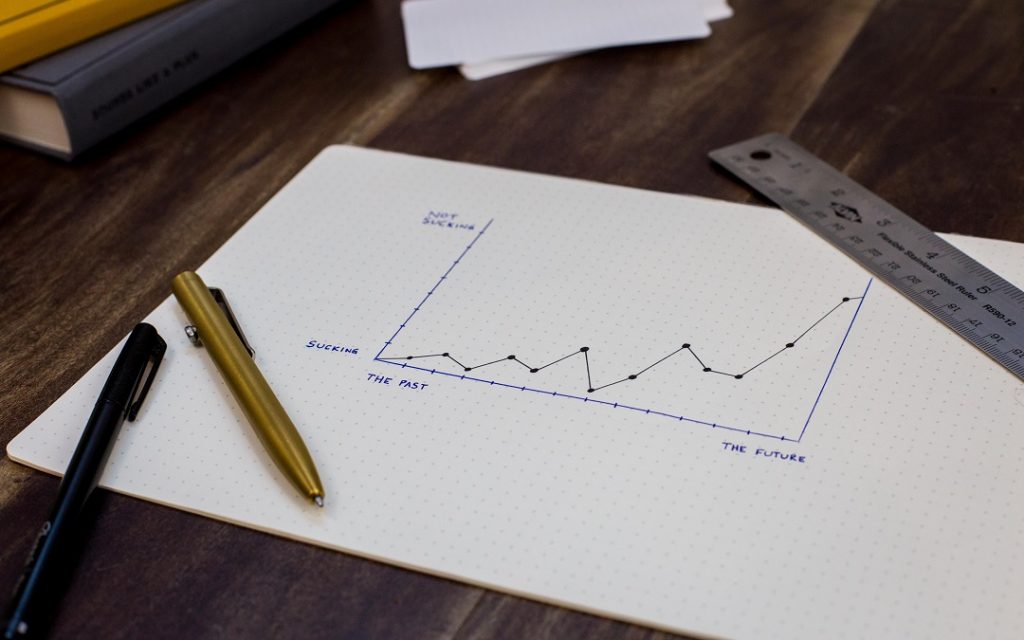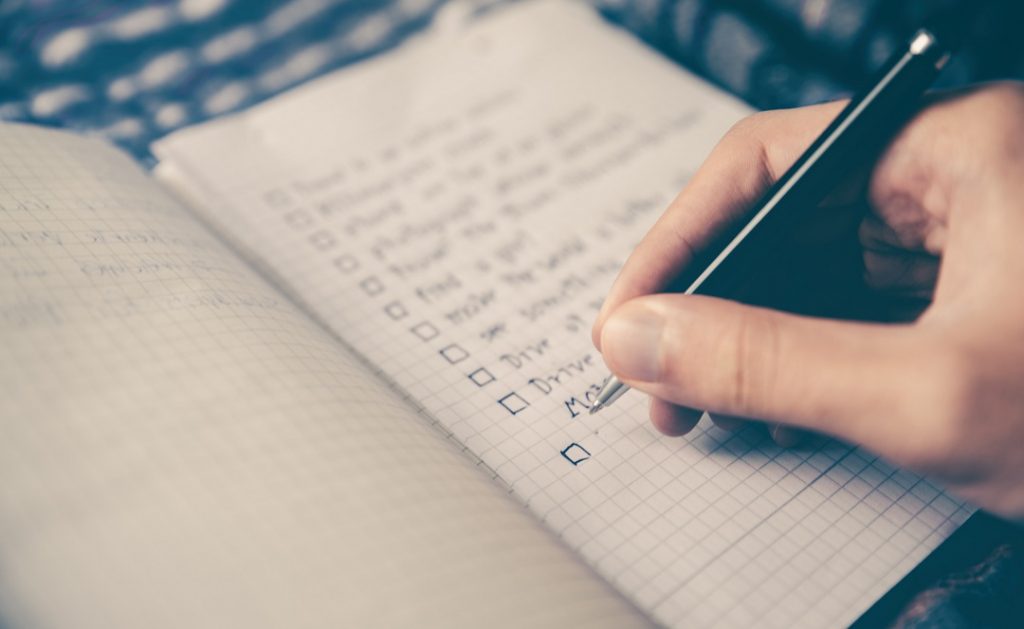Everyone has weaknesses. Some are more obvious than others, but either way, it is important to identify our shortcomings and learn how to turn them into personal strengths or else risk feeling “stuck” in life. While research shows that focusing on strengths can be the more powerful way to achieve success, identifying weaknesses helps us to leverage those strengths into the areas in our lives where we might not be doing so well today, so that we can grow and maximize future opportunities.
The HIGH5 strengths assessment provides an objective way to uncover your unique strengths profile and understand how to optimize your natural talents. By taking this science-based assessment, you’ll gain insights into how your strengths can help you overcome weaknesses and unlock your full potential. In this article, we’ll discuss how you can identify your weaknesses and improve on them to turn them into personal strengths.
What are personal weaknesses?
Personal weakness is any behavioral quality that makes it more difficult for you to fulfill your potential. These weaknesses can be mental, physical, or emotional. Behavior stemming from such deficiencies prevents you from achieving your goals and having a fulfilling life. These weaknesses can prevent you from achieving success in your career as well as your personal and social life.
10 ways to identify personal weaknesses
While techniques like watching your thoughts and practicing self-awareness are helpful, an even more effective way to comprehensively identify areas where you need development is through a validated strengths assessment. The HIGH5 test is a proven assessment that provides an in-depth, multi-dimensional analysis of your unique talents and patterns.
By understanding your complete strengths profile, you can gain powerful insights into how to maximize The following list identifies some of the most common ways to discover your personal weaknesses. This list, combined with an understanding of your complete strengths profile as provided by the HIGH5 test, can give you powerful insights into how to maximize your potential while addressing blind spots productively.
- Watch your thoughts.
- Practice self-awareness.
- Take an honest look at your relationships.
- Get a coach.
- Keep a journal of your thoughts and actions.
- Track what’s working and what’s not in your life.
- Get feedback from others you trust.
- Keep a list of the things that make you happy, sad, or angry each day, and think about how those feelings could be impacting your life.
- Rewrite rules for yourself as if they were laws that must be obeyed by everyone.
- Set a timer for thirty minutes and write down everything that comes to your mind at the moment.
Let’s dive deeper into each point.
1. Watch your thoughts
What exactly is a thought? A thought is a model of our experience held in the mind, caused by a stimulus [1]. Because thoughts are the source of our words and actions, our thoughts can have a great impact on ourselves and the world around us. By paying attention to our thoughts, we slow ourselves down long enough to make mindful decisions rather than just acting on impulse.
By observing our thoughts, we can identify those that might lead us to behave in harmful ways. We also slow ourselves down so that we can consciously choose to act from our strengths rather than our weaknesses. This leads to a growing repertoire of positive actions, which will serve us better in achieving our goals.
2. Practice self-awareness
Self-awareness is a term used to describe the act or state of knowing oneself and how one interacts with one’s environment [2]. Taking the time to observe what you do, why you do it, and how what you do impacts the people around you empowers you to choose what kind of person you are. With this knowledge, you then have a road map of how far along you are on the way to becoming the person you want to be.
3. Take an honest look at your relationships
Everyone has three types of relationships: personal, professional, and social. Which of these relationships is helping you become your best self? Which might be holding you back, perhaps through enmeshment or enabling you to get away with harmful behavior? If a relationship is holding you back from achieving the things that matter to you, it might be time for a change, either in that relationship or in how you show up with that person.
4. Get a coach
A coach acts as a guide on our journey through life by helping us focus on our personal strengths while also addressing our weaknesses proactively. This allows us to become aware of what we’re doing and why we do it, which is important in helping us identify the steps we need to take toward achieving our goals.
A coach will not only give feedback on how you’re doing but also provide support for you when you are struggling during your journey.
5. Keep a journal of your thoughts and actions
Writing things down helps them stay with you longer and makes it easier to recall them later on when you need them most. There’s nothing like penning an idea down quickly before it evaporates into thin air.
Keeping a journal of your thoughts and then looking back mindfully on your journal entries allows you to see patterns in your thinking. Noticing these patterns can help you identify what triggers certain thoughts or behaviors. This type of journaling may be as simple as keeping track of the books, people, or events that activate certain thoughts or feelings.
6. Track what’s working and what’s not in your life
By taking the time to identify, record, and consider what makes you happy, healthy, productive, and fulfilled as opposed to miserable, sick, ineffective, and dissatisfied, you will gain greater clarity about what matters to you most and which of your patterns contribute the most to your wellbeing.
At the same time, it is essential to identify areas of non-fulfillment. This empowers us to make better choices for ourselves going forward that are more likely to bring us closer to our goals.
7. Get feedback from others you trust
Your friends and family may know things about you that have escaped even your notice. Having a fresh set of eyes to see things from another perspective can be extremely helpful – sometimes you just need an outsider’s perspective to help you understand things better. However, before you ask for this feedback, be sure you are ready to accept the occasional hard truth about yourself and be willing to make changes.
8. The things that make you happy, sad, or angry
It has been found that those who tend to identify their feelings regularly and reflect on how they impact them are more successful in work and relationships than those who do not. This skill, known as emotional self-awareness, is a key component of emotional intelligence (EQ), which has been shown to boost workplace performance [3].
Develop this aspect of EQ by keeping a list of the things that make you happy, sad, or angry each day, and evaluate how those feelings could be affecting your life. This data then permits us to identify those events that activate our weaker qualities. Then we are free to choose what we want to do both short- and long-term rather than feeling trapped in our own lives.
9. Rewrite rules for yourself as if they were laws that must be obeyed by everyone
One of the ways our weaknesses can take over our lives is through our dishonesty with ourselves in how we sometimes judge others harshly for doing the same negative things that we sometimes do. When we mindfully choose to behave in ways that we would approve of in someone else, we eliminate the weakness of hypocrisy. This will help lower your stress level by giving you more control over how you interact with the world around you and giving you fewer things to worry about having “found out.”
10. Set a timer for thirty minutes and write down everything that comes to your mind at the moment
Finally, what we tend to forget is that the mind likes keeping things it considers important inside, where it thinks no one else can see them [1]. By practicing getting our thoughts outside of ourselves, we are free to judge their value more objectively. It takes practice for us to get used to being transparent with ourselves. However, at least one study shows that even just short-term practice of EQ-raising activities like this type of journaling exercise can have long-term benefits [4].
Why it is important to identify personal weaknesses?
When we identify our weaknesses as well as our personal strengths, we give ourselves the capacity to release ourselves from those issues that continue to hold us back in life. Identifying these personal weaknesses can be a compelling first step toward creating productive change in your life. Our shortcomings don’t only keep you from achieving what you want, but they also may give you excuses for not going after your goals. The benefits of identifying your weaknesses and converting them into personal strengths are many.
These include:
- You will be more knowledgeable about yourself and the issues holding you back and the issues that motivate you to move towards your goals.
- This knowledge can make you more aware of your needs, wants, and typical pitfalls, so that you can navigate towards what helps and away from what harms.
- Understanding what motivates you can help guide your future actions toward your aspirations and towards self-improvement. Conversely, knowing what does not motivate you will help you leave behind tools that have been keeping you stuck.
- With a clearer understanding of who you are and who you aren’t–it becomes easier to create plans with specific objectives that are tailored to getting yourself closer to where you want to be in life – physically mentally, emotionally, and spiritually.
40 examples of personal weaknesses
To help you get started on your list of shortcomings, here is a list of 45 personal weaknesses that are common in many people.
- Jealousy
- Suspicion
- Lack of self-esteem
- Low threshold for boredom
- Impulsiveness
- Anxiety
- Being uncooperative for the sake of defiance and rebelliousness
- Lack of foresight
- Procrastination
- Unrealistic expectations in challenging situations
- A need to be constantly busy or occupied
- A need for constant attention (praise)
- Codependence, or difficulty making decisions without feedback from others
- Rumination, or the tendency to dwell dwells on mistakes, no matter how long ago they were made
- Lack of attention to quality sleep patterns, leading to avoidable irritability
- Impulsive behavior
- Hyper-independence and a lack of teamwork skills
- Low sense of self-worth
- Inflexibility
- Defensiveness and blaming others for their own mistakes or shortcomings in life
- Indecisiveness
- Overly passive, complaining excessively rarely taking any action to create change
- Lack of focus
- Unwillingness to get out of negative moods
- Hypervigilance
- Pessimistic
- Easily discouraged
- Antagonistic, doesn’t get along with others easily
- Aimlessness, or living without purpose, direction, or attainable goals
- Apathy towards one’s own health, especially regarding exercise and diet
- Frequently emotionally dysregulated (prone to “mood swings”)
- Helplessness: an unwillingness to address one’s feelings of depression and sadness
- Envy
- A lack of empathy: an absence of consideration for another person’s point of view
- A sense of entitlement, acting as if the rules don’t apply to you
- Restlessness: extreme discomfort with being alone or quiet
- Strong negative reactions to positive feedback
- Irresponsibility and an unwillingness to accept blame for the consequences of one’s own actions
- Arrogance
- Being hypercritical: always having something negative to say or think
Pro Tip From HIGH5
Rather than solely focusing on perceived weaknesses, try reframing them as opportunities to better utilize strengths. For example, if procrastination is an issue, identify strengths like Strategist that could be leveraged to create a system for staying on track.
How to turn weaknesses into personal strengths?
To turn a weakness into a strength takes patience, hard work, and a willingness to change. Sometimes you can work on your weaknesses by setting an intentional goal to become proficient in them. For example, if you are really bad at remembering the names of people you see often, then you could set a goal for yourself to learn the name of every person who works with you.
Another approach is to delegate tasks that involve your weaknesses so that they do not hold back your team’s project. Hire someone else to do your weaker task for you, or find someone on your team who has those skills. You could also identify someone on your team who has a similar weakness so you can help each other out and cheer on each other’s growth.
Pro Tip From HIGH5
Delegating tasks related to weaknesses is smart, but an even better approach is to intentionally partner with colleagues who are strong in those areas. This allows you both to operate from your strengths, which you have identified with HIGH5, while complementing each other’s gaps.
Why do interviewers ask about weaknesses?
The questions asked during a job interview aren’t meant to catch you off guard or make you look bad. They’re designed to uncover your personal strengths and weaknesses, determine whether or not you can do the work required of the position, and find out if you’d be a good team member.

Interviewers must know about the professional strengths and weaknesses of a person applying for employment for their company so they can match them up with appropriate positions. Knowing what to expect from potential employees leads to the team achieving maximum productivity and quality. Job interviews are necessary for employers to evaluate candidates, and they help job candidates to know if the company is a good fit.
Remember that potential employers just want to hire someone right for their business, so they will ask about things that could potentially impact your ability to perform well on the job. Before interviewing with an employer, research the company culture, what type of position they’re hiring for and how it works within the company. This will help you prepare better answers to questions about your professional strengths, weaknesses, and motivations for the job.
Pro Tip From HIGH5
Before an interview, review your HIGH5 strengths report and have examples ready for how you’ve leveraged your top strengths in professional settings. This highlights your self-awareness and commitment to personal growth.
How to answer interview questions about weaknesses?
The first thing you must do in answering any question about your weaknesses is to identify what type of weakness you are being asked about. Are they exploring whether or not you would be a good fit for the tasks of the job, or are they trying to see if you have any deficits in “soft skills” that might make working with you difficult?
When answering interview questions about weaknesses, consider how it could help them determine whether you’d be an asset to their company and can do the job at hand, and include in your response the actions you are taking to strengthen this weak area.
You can also include in your response how your strengths compliment your weaknesses. To learn more about your strengths, make sure you carefully review the results of your HIGH5 strengths report.
How to answer interview questions about weaknesses?
Example Answer:
“One area I’m working to improve is my tendency to take on too many projects simultaneously. I often get excited about new ideas and opportunities, sometimes leading to over-committing myself. However, I’ve recognized this as an area for growth and have started using project management tools to help me prioritize tasks better and set realistic deadlines.
For instance, in my previous job, I juggled multiple tasks and occasionally missed deadlines. Now, I make a point to assess my workload and discuss priorities with my team to ensure I can deliver high-quality work on time. This approach has helped me manage my time better and improved my overall productivity.”
Identifying personal weaknesses FAQ
How to find a person’s weakness?
Identify a team member’s weakness by observing their behavior and reactions in various situations. Assessment tools and feedback from trusted individuals can also help.
How do you address personal weaknesses?
Address personal weaknesses by acknowledging them and creating a plan to improve. This can include setting goals, seeking feedback, and leveraging strengths to counterbalance weaknesses.
Conclusion
In conclusion, everyone has their own set of weaknesses and strengths. Some are more obvious than others. But it is important to identify them and learn how to turn them into strengths, or else they will continue to hold you back in life. Learning how to change your behavior and focus on what you are good at can be difficult, sometimes even painful, but it is important to remember that everyone has weaknesses to conquer. You are not alone in your imperfections.
However, unless you work on these shortcomings, they will never go away entirely. You need to take an honest inventory of your thoughts, feelings, and behaviors. Then use that information to identify your deficiencies so that you can develop a plan to turn them into strengths that can be called upon when needed.
References:
- Lewis, R. (2023, October 7). What actually is a thought? And how is information physical? Psychology Today. https://www.psychologytoday.com/us/blog/finding-purpose/201902/what-actually-is-a-thought-and-how-is-information-physical
- Eurich, T. (2018, January 4). What self-awareness really is (and how to cultivate it). Harvard Business Review. https://hbr.org/2018/01/what-self-awareness-really-is-and-how-to-cultivate-it
- Morgan Philips Group. (n.d.). How to boost your emotional intelligence (EQ). https://www.morganphilips.com/en/insights/how-to-boost-your-emotional-intelligence-eq
- Nelis, D., Quoidbach, J., Mikolajczak, M., & Hansenne, M. (2009). Increasing emotional intelligence: (How) is it possible? Personality and Individual Differences, 47, 36–41.














